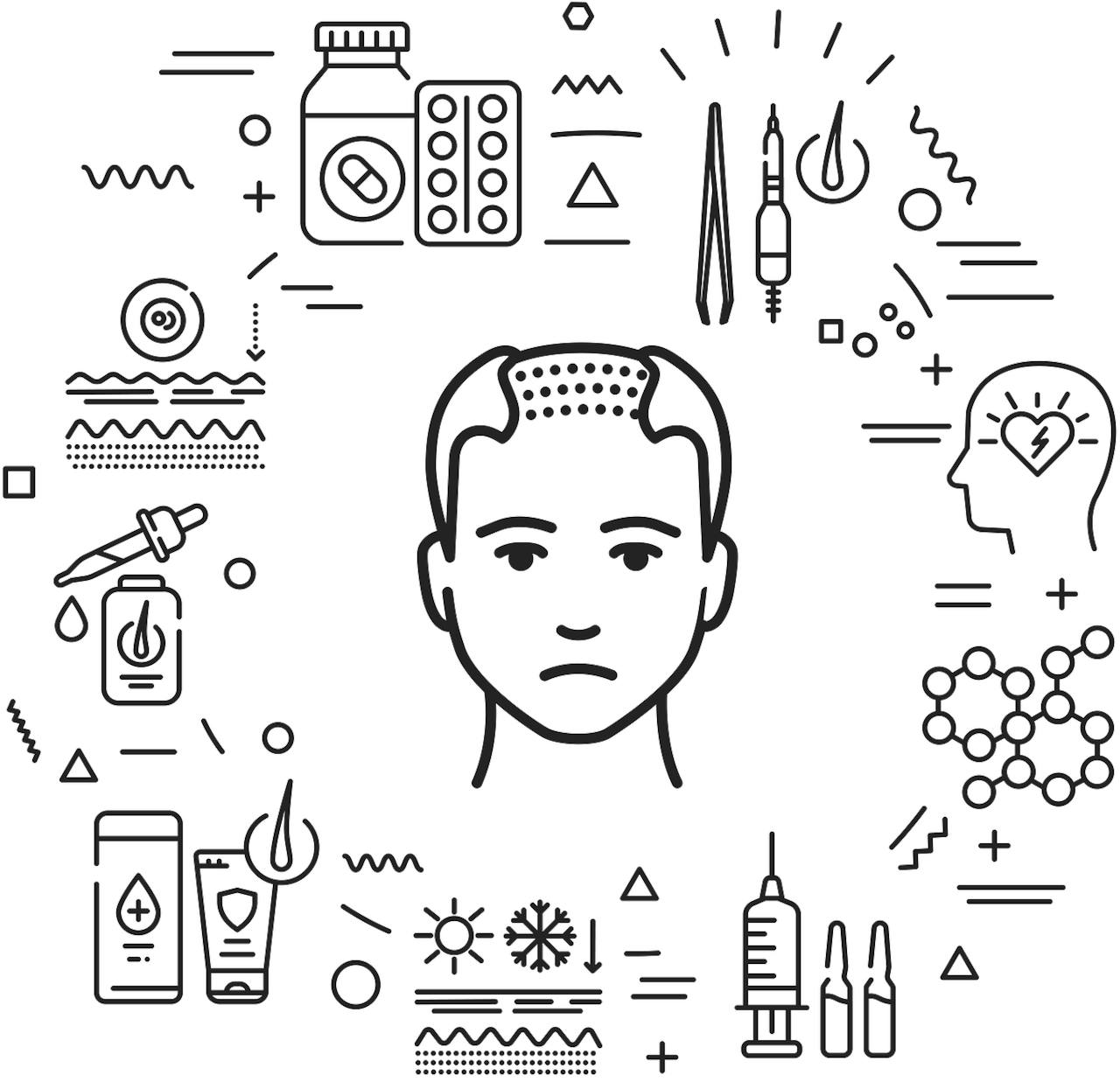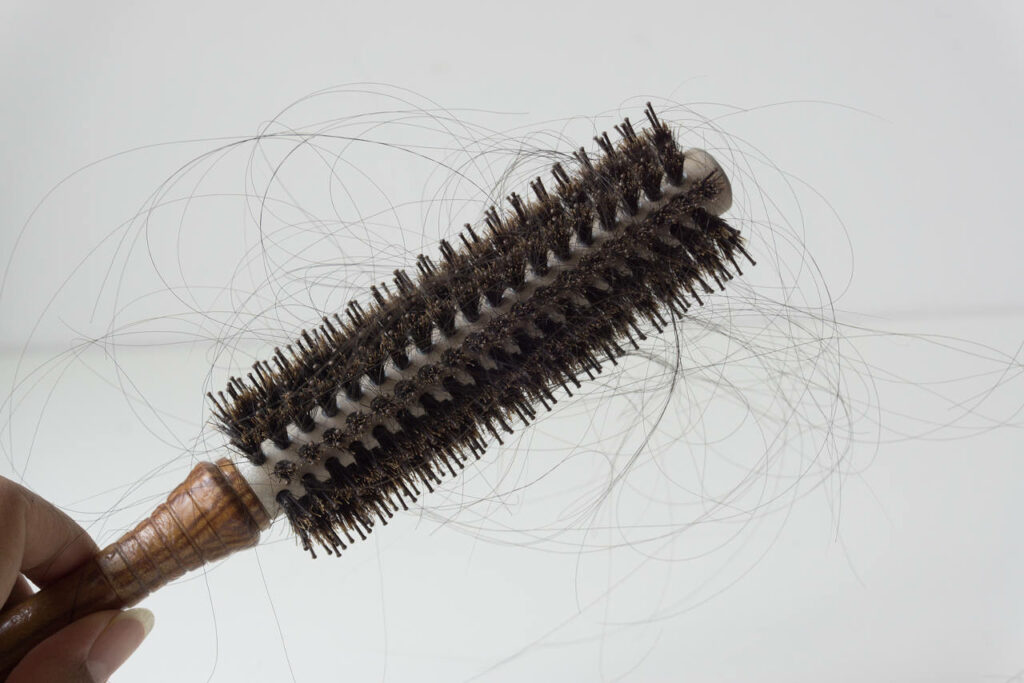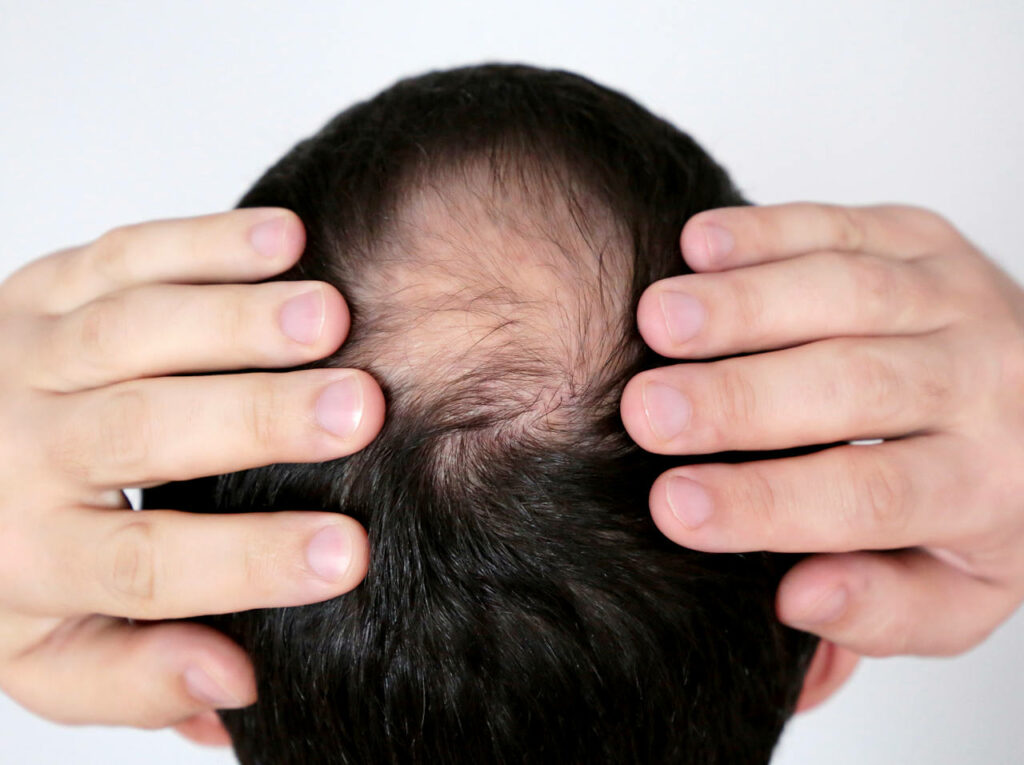
Why is My Hair Falling Out? – The Causes and Treatments
Hair loss happens on a daily basis. Between showering, using cosmetic products and brushing your hair, the average person loses between 50 and 100 strands of hair a day.
This happens as part of the life cycle of hair follicles. The anagen phase is where there is active growth, followed by the catagen phase, where the hair fibre stops developing. Finally, there is the telogen phase, where the old hair falls out naturally.
If you start to notice increased hair loss, however, you may be wondering, why is my hair falling out? When the cycle of hair growth is skewed, there can be several reasons for this.
Summary
- What are the Reasons for My Hair Falling Out?
- Can Hair Loss be a Sign of Something More Serious?
- How to Stop Hair from Falling Out?
- Conclusion: Elithair’s Recommendations
What are the Reasons for My Hair Falling Out?

There are 6 factors which may contribute to hair loss. The cause and type of hair loss you have is important in determining how to tackle it, so being informed about this is essential.
1. Genetics
It’s worth researching if you have a family history of hair falling out as many people suffer from hereditary hair loss. It’s a common cause of hair loss that can be passed down from both sides of your family although it is more frequently found where both the mother and father have experienced hair loss. While men can be seen to have a receding hairline or alopecia areata (bald spots), women are predisposed to the hair thinning.
2. Hormones
There are two main hormones which can contribute to the process of the hair cycle. Oestrogens assist in keeping hairs growing for the ideal amount of time to allow for a negligible amount of hair shedding.
On the other hand androgens can cut the development of the hair follicles short. Therefore if there is an imbalance in hormones it may be responsible for excessive shedding.
3. Stress
When you are stressed it can cause your hair to fall out in large quantities. Telogen effluvium can occur sometimes where hair falls out several weeks if not months after a stressful event. Unfortunately when stress is the cause it can create a cycle due to the worry of the shedding hair resulting in further hair loss.
4. Nutritional Deficiencies
There are several vitamins and minerals which when in short supply can be responsible for hair falling out. Possible insufficient nutrients include iron and vitamin B12 which can occur when your diet is lacking in protein.
5. Age
As your body slows down the hair becomes finer organically making it more susceptible to hair loss. Natural changes to hormones that happen as you get older such as during menopause can result in hair falling out. Women can suffer from androgenetic alopecia as part of this or female pattern baldness as it is more commonly known.
6. Hairstyle
How the hair is worn can also contribute to hair loss. This is known as traction alopecia, whereby the tight pulling of the hair in different hairstyles can cause the hair to become fragile and fall out. It can be common among those who wear braids, tight buns or extensions on a regular basis.
Can Hair Loss be a Sign of Something More Serious?

While there are of course implications for your appearance and self-esteem when it comes to hair loss, there may also be more concerning reasons for your hair falling out that should be kept in mind.
Hereditary Hair Loss
Hair loss that has been passed down through genetics is regrettably unavoidable. Here you will see a continuous and increasing loss in the volume of your hair. The best solution for this in the long run is a hair transplant, which Elithair can advise you about.
Lupus
There are many symptoms that indicate this autoimmune disease, including headaches, swelling joints and chronic tiredness. When combined with hair loss it may be a sign of Lupus, although it can be difficult to diagnose, so you should consult your doctor if you think this may be the case.
Polycystic Ovarian Syndrome
This medical condition also known as PCOS, is where the ovaries are over producing male hormones. Along with hair loss on the scalp and other parts of the body, symptoms include acne, erratic periods and cysts on the ovaries.
Hypothyroidism
When the body is unable to produce enough of the hormone thyroid, it can affect your metabolism, heart rate and even mood. The symptoms can include the hair, nails, and skin becoming weaker and therefore leading to hair loss.
How to Stop Hair from Falling Out?
Diet
Along with protein being important in the production of new hair follicles, complex carbohydrates that can be obtained from eating fresh fruit and whole wheat grains provide hair with the necessary energy to grow.
Supplements
Providing a boost to the vitamin and mineral levels in your body can help with halting hair loss. They are best taken in combination with a healthy diet. Anything containing iron, vitamin B12, zinc and amino acids are helpful.
Medical Procedure
Of course, there are cases where the hair loss is too severe and a long term solution is required. That is where a hair transplant can help to restore bald patches and provide uniform and healthy hair.
Conclusion: Elithair’s Recommendations
We understand that hair loss can contribute to lowered self-confidence and an overall decrease in your quality of life. Our specialists are on hand to discuss your options with you and provide helpful advice on how to combat your hair loss.
With a hair transplant with Elithair, you can trust that our expert team will have your best interests in mind as we provide a personalised consultation tailored to your needs. Take the stress out of hair loss and contact Elithair to receive your non-binding offer for your all-inclusive hair transplant procedure.



